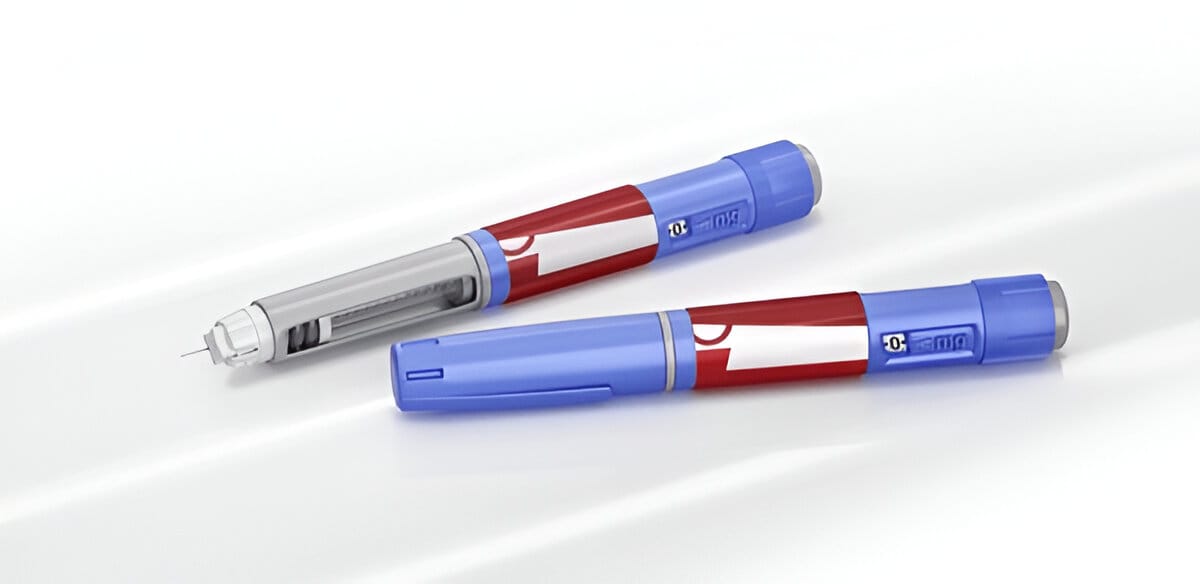As a board-certified physician at Torres Medical, Dr. Torres has seen remarkable results with weight loss injections among patients struggling with traditional weight loss methods. These injectable medications have revolutionized obesity treatment by targeting hormonal pathways that regulate hunger and metabolism, making weight management more achievable for many individuals.
When properly prescribed and monitored by qualified healthcare providers like those at Torres Medical, weight loss injections can be a valuable tool in a comprehensive approach to weight management. Dr. Torres carefully evaluates each patient’s medical history, current health status, and weight loss goals before recommending this treatment option.
Torres Medical’s personalized approach ensures patients receive appropriate education about these medications, including potential side effects and lifestyle modifications needed for optimal results. Dr. Torres emphasizes that these injections work best as part of an integrated weight management plan that includes nutrition guidance, physical activity recommendations, and behavioral support.
Understanding Weight Loss Injections
Weight loss injections represent a significant advancement in medical approaches to obesity management. These medications have shown remarkable results when used as part of a comprehensive weight management program that includes dietary changes and physical activity.
What Are Weight Loss Injections?
Weight loss injections are prescription medications administered via injection to help individuals lose weight. Unlike dietary supplements, these are FDA-approved medications specifically designed to target biological mechanisms involved in weight regulation.
At Torres Medical, Dr. Torres has seen firsthand how these medications can transform patients’ weight loss journeys. These injections work by either reducing appetite, increasing feelings of fullness, or altering how the body processes fat.
Most weight loss injections are self-administered once weekly using pre-filled pens, making them convenient for patients. They’re typically prescribed for individuals with BMI ≥30 or BMI ≥27 with weight-related health conditions such as hypertension or type 2 diabetes.
How Weight Loss Injections Work
Weight loss injections primarily function by mimicking hormones that regulate hunger and satiety. The most effective class, glucagon-like peptide-1 (GLP-1) receptor agonists, works by slowing gastric emptying and affecting the brain’s appetite control centers.
When patients inject these medications, they experience reduced hunger signals and increased feelings of fullness after smaller meals. This biological intervention helps create a caloric deficit necessary for weight loss.
Dr. Torres explains that these medications also help regulate blood sugar levels, which can reduce cravings and prevent energy crashes that often lead to overeating. The consistent appetite control provided by weekly injections gives patients an advantage over traditional dieting methods that often fail due to hunger and cravings.
Types of Weight Loss Injections: Ozempic, Wegovy, and Semaglutide
Several GLP-1 receptor agonists have gained prominence in weight management. Semaglutide, available under brand names Wegovy (specifically approved for weight loss) and Ozempic (primarily for diabetes), has shown exceptional results with average weight reductions of 15-20% when combined with lifestyle modifications.
Wegovy contains the same active ingredient as Ozempic (semaglutide) but is FDA-approved specifically for chronic weight management. Studies show patients using Wegovy lost significantly more weight than those using older anti-obesity medications.
Dr. Torres at Torres Medical carefully evaluates each patient’s medical history before recommending these medications. Side effects may include nausea, vomiting, and diarrhea, which typically improve over time. These medications are not suitable for everyone, particularly pregnant women or those with certain medical conditions such as medullary thyroid cancer.
Why I Recommend Weight Loss Injections
Weight loss injections have emerged as valuable tools in modern obesity treatment protocols. These medications offer comprehensive solutions for patients struggling with weight management by addressing both physiological and behavioral aspects of weight gain.
Significant and Sustainable Weight Loss
Clinical studies have consistently demonstrated that weight loss injections can produce remarkable results for appropriate candidates. Patients typically experience a 15-20% reduction in body weight over the course of treatment, surpassing what is generally achievable through diet and exercise alone. This is particularly valuable for individuals who have repeatedly attempted traditional weight loss methods without success.
The medications work by mimicking natural hormones that regulate hunger and satiety signals. By targeting these biological pathways, patients report decreased food cravings and enhanced feelings of fullness after smaller meals.
At Torres Medical (https://torres-medical.com/), Dr. Torres has observed that patients maintain their results longer when injections are combined with lifestyle modifications. This dual approach addresses both immediate weight concerns and establishes sustainable habits for long-term success.
Suitability for Obesity and High-Risk Patients
Weight loss injections are particularly beneficial for patients with a body mass index (BMI) above 30, or above 27 with weight-related comorbidities. These medications provide intervention options for patients facing serious health complications from excess weight.
Dr. Torres carefully evaluates each patient’s medical history, current health status, and weight-related risk factors before recommending injection therapy. This personalized approach ensures treatments align with individual needs and health goals.
Patients with conditions like prediabetes, hypertension, or sleep apnea often see improvements in these conditions as they lose weight. The benefits extend beyond cosmetic changes to meaningful improvements in biomarkers and quality of life.
For high-risk patients, these medications offer a medical intervention that can interrupt the progression toward more serious conditions like type 2 diabetes and cardiovascular disease.
Role in Chronic Weight Management
Weight management is often a lifelong challenge requiring ongoing support and intervention. Weight loss injections serve as valuable components in comprehensive chronic weight management programs.
Dr. Torres at Torres Medical emphasizes that these medications work best as part of an integrated approach. The clinic combines pharmacotherapy with nutritional guidance, behavior modification techniques, and appropriate physical activity recommendations.
Long-term studies show that continued use of weight loss injections helps many patients maintain their weight loss over time. This represents a significant advancement over traditional approaches that often result in weight regain.
The medications help stabilize the body’s metabolic adaptations that typically fight against weight loss. This physiological support makes it easier for patients to maintain their new healthier weight rather than experiencing the frustrating cycle of weight loss and regain.
How Weight Loss Injections Compare to Other Strategies
When evaluating weight loss methods, it’s essential to understand how injectable medications fit into the broader spectrum of available options. These treatments offer unique advantages in terms of efficacy, convenience, and long-term outcomes compared to traditional approaches.
Injections vs. Oral Medications
Weight loss injections typically deliver medications directly into the bloodstream, bypassing the digestive system. This route of administration often results in more predictable absorption and potentially greater effectiveness compared to oral medications.
At Torres Medical (https://torres-medical.com/), Dr. Torres has observed that injectable GLP-1 agonists produce more consistent results than many oral weight management medications. Patients typically experience fewer digestive side effects with injections compared to pills.
Injectable medications also offer the advantage of less frequent dosing. While oral medications may require daily administration, many weight loss injections need only weekly application, improving convenience and adherence for busy patients.
Another key difference lies in mechanism of action. Most injectable options work by directly affecting appetite regulation in the brain and slowing gastric emptying, creating powerful satiety signals that oral medications often cannot match.
Combination With Diet and Exercise
Weight loss injections work best when implemented alongside lifestyle modifications. Dr. Torres emphasizes that these medications amplify the effects of proper nutrition and physical activity rather than replacing them.
Patients at Torres Medical who combine injections with a structured exercise program typically lose 15-20% more weight than those using injections alone. The medications help control hunger during caloric restriction, making dietary adherence significantly easier.
Dr. Torres recommends a moderate protein, lower carbohydrate approach for most patients on injectable weight loss medications. This nutritional strategy enhances the metabolic benefits of the medication while providing satiety.
Exercise becomes more manageable for many patients after beginning injections. With reduced hunger and increased energy from initial weight loss, patients often find they can engage in physical activity with greater consistency.
Long-Term Weight Loss Maintenance
The challenge of maintaining significant weight loss is where injections may offer their greatest advantage over traditional approaches. Research shows that without intervention, most people regain lost weight within 1-5 years.
Dr. Torres notes that patients continuing modified injection protocols have maintained 80% of their weight loss after two years, compared to only 30% maintenance in those using diet and exercise alone. The sustained appetite regulation provides crucial support during the maintenance phase.
Metabolic adaptation—where the body fights to regain lost weight—appears less pronounced with certain injectable protocols. This physiological advantage helps prevent the rapid weight regain common with other weight management approaches.
For long-term success, Torres Medical develops personalized maintenance plans that may include less frequent injections, ongoing nutritional counseling, and regular monitoring to catch weight fluctuations early.
Considerations, Safety, and Side Effects
Weight loss injections offer significant benefits but require careful consideration of safety profiles, potential side effects, and individual health factors before beginning treatment.
Potential Side Effects of Weight Loss Injections
Semaglutide and similar weight loss injections commonly cause gastrointestinal side effects. Nausea affects approximately 40% of patients, particularly during the first few weeks of treatment.
Diarrhea, constipation, and vomiting may also occur as the body adjusts to the medication. Most side effects tend to diminish over time as tolerance develops.
Some patients report fatigue, headaches, or dizziness during treatment. According to research reviewed by Dr. Torres at Torres Medical, these symptoms typically resolve with proper dose management.
Severe adverse effects are rare but may include pancreatitis or gallbladder issues. The FDA has received limited reports of these complications, emphasizing the importance of medical supervision.
Who Should and Should Not Use Injections
Patients with obesity-related health conditions often benefit most from weight loss injections. This includes those with high blood pressure, type 2 diabetes, or sleep apnea.
Individuals with a personal or family history of medullary thyroid cancer or Multiple Endocrine Neoplasia syndrome type 2 should avoid semaglutide. These contraindications are strictly enforced at Torres Medical.
Pregnant or breastfeeding women should not use these medications. The safety profile has not been established for these populations.
Those with severe gastrointestinal conditions like inflammatory bowel disease may experience worsened symptoms. Dr. Torres carefully screens for these conditions before recommending injection therapy.
Patients with a history of pancreatitis or gallbladder disease require special consideration and monitoring.
Guidance for Patients Considering Injection Therapy
A comprehensive consultation with a primary care provider or specialist is essential. At Torres Medical, Dr. Torres conducts thorough evaluations of health conditions and medication interactions.
Start with the lowest possible dose of semaglutide and gradually increase it. This approach minimizes side effects while allowing the body to adjust to the medication.
Maintain proper hydration and consider dietary modifications to reduce gastrointestinal discomfort. Small, frequent meals often help manage nausea.
Regular monitoring through scheduled follow-ups ensures safe and effective use. Torres Medical implements structured check-ins to track progress and address concerns.
Patients need to establish realistic expectations about weight loss outcomes and timeline. Most see significant results within 3-6 months when combining injections with lifestyle changes.
Frequently Asked Questions
Injectable weight loss medications have revolutionized weight management approaches at Torres Medical. Dr. Torres carefully evaluates each client’s medical history and weight loss goals before recommending appropriate treatment options.
What are the most effective injectable drugs for weight loss currently on the market?
Dr. Torres at Torres Medical typically recommends GLP-1 receptor agonists such as Ozempic, Wegovy, and Saxenda as they’ve demonstrated significant clinical efficacy for sustainable weight loss.
Can weight loss injections be safely self-administered at home, and if so, how?
After proper training at Torres Medical, patients can safely self-administer weight loss injections using pre-filled pens with detailed instructions provided by Dr. Torres’s medical team.
What expectations should clients have regarding weight loss after a 6-week regimen of GLP-1 receptor agonists like Ozempic?
Dr. Torres advises patients at Torres Medical to expect moderate results of 5-10% body weight reduction after six weeks, with continued improvements when following the prescribed treatment plan.
Beyond weight reduction, what are the potential health benefits for diabetics using certain weight loss medications?
According to Dr. Torres, diabetic patients at Torres Medical often experience improved glucose control, reduced insulin requirements, lower cardiovascular risks, and better overall metabolic health.
What are the common side effects associated with injectable weight loss medications?
Torres Medical patients are informed that nausea, constipation, diarrhea, and injection site reactions are the most frequently reported side effects, which Dr. Torres notes typically diminish after the first few weeks.
What criteria determine if a client is a suitable candidate for therapeutic weight loss injections?
Dr. Torres evaluates BMI measurements, previous weight loss attempts, existing health conditions, medication interactions, and commitment to lifestyle changes before approving patients at Torres Medical for injectable weight loss treatments.



